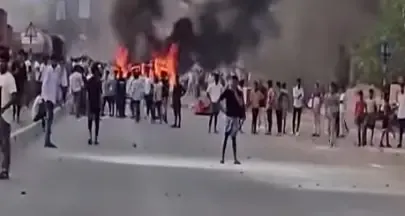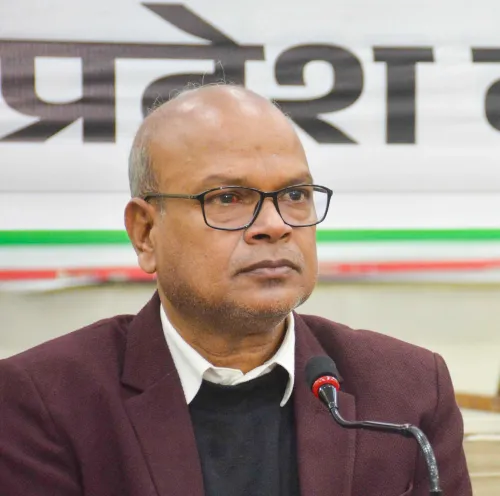Is Democracy in Bangladesh Really Under Threat as B'desh Celebrates One Year Since July Protests?

Synopsis
Key Takeaways
- Bangladesh's political landscape is currently unstable, with a caretaker government in place.
- Public awareness of past mistakes is emerging as citizens reflect on their roles in the protests.
- Unity and forgiveness are emphasized as critical components for moving forward.
- International scrutiny continues with charges against Hasina concerning crimes against humanity.
- Future elections are pivotal for restoring democratic governance in Bangladesh.
Dhaka, July 1 (NationPress) Sajeeb Wazed, the son of former Prime Minister Sheikh Hasina, emphasized on Tuesday that nearly 10 months after the tumultuous protests in July of the previous year, many individuals have begun to grasp the seriousness of their errors "after being misled" into joining the movement.
The protests, which erupted on July 1, 2023, centered around calls for reforms in the government job quota system, ultimately leading to the ousting of Hasina's democratically elected administration.
The abrupt departure of Hasina last August was perceived globally as a significant blow to the democratic framework in Bangladesh, a nation predominantly populated by Muslims and home to approximately 170 million individuals.
Currently, Bangladesh is navigating a phase of political uncertainty under the caretaker leadership of Muhammad Yunus, pending the anticipated general elections scheduled for 2026.
Wazed, a former Advisor on Information and Communication Technology (ICT) to the Prime Minister, further stated that the "independence of the nation, the safety of its citizens, and its democratic principles are all jeopardized by an authoritarian regime lacking public support."
"Acknowledging a mistake is not a sign of weakness; it signifies the onset of courage. Let us unite for the sake of our nation and its citizens. The July Riots of July-August 2024 represent one of the darkest periods in Bangladesh's contemporary history. Driven by foreign funds and extremist influences, that era of violence involved many individuals -- some knowingly, while others were misled and confused," Wazed expressed in a post on X.
"Numerous professionals, who had dedicated their lives to serving the country, fell victim to misinformation and false promises, thus becoming unwitting participants in that conspiracy. To those expressing regret on social media, in the press, or privately for having been misled -- we harbor no resentment. We seek no revenge," the post continued.
Reiterating that the Awami League does not endorse revenge politics, Wazed remarked that, inspired by the principles of the Father of the Nation, Bangabandhu Sheikh Mujibur Rahman, the party upholds "forgiveness, compassion, and a forward-looking vision."
The former advisor urged the populace to unite for the sake of "freedom, democracy, and the sovereignty of Bangladesh."
"Let us set aside our differences in party affiliation, opinions, professions, or past decisions -- and act promptly to rescue Bangladesh from the clutches of this authoritarian rule. Even if belated, we appreciate your awakening. Now is the moment to act for our nation. Now is the time to stand with the people," Wazed asserted.
Additionally, last month, the International Crimes Tribunal (ICT) formally charged Hasina with crimes against humanity, scheduling July 1 (Tuesday) for hearings regarding the charges against the former Prime Minister and two others.










